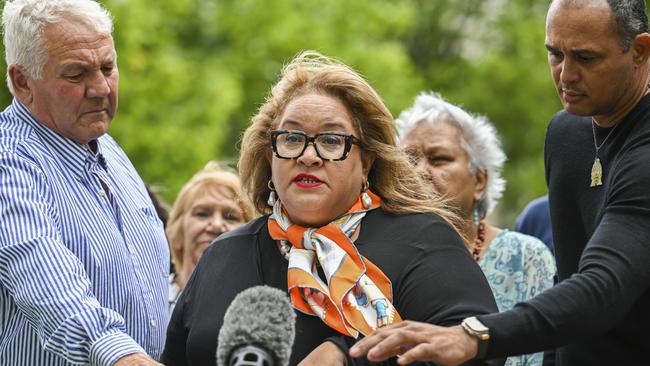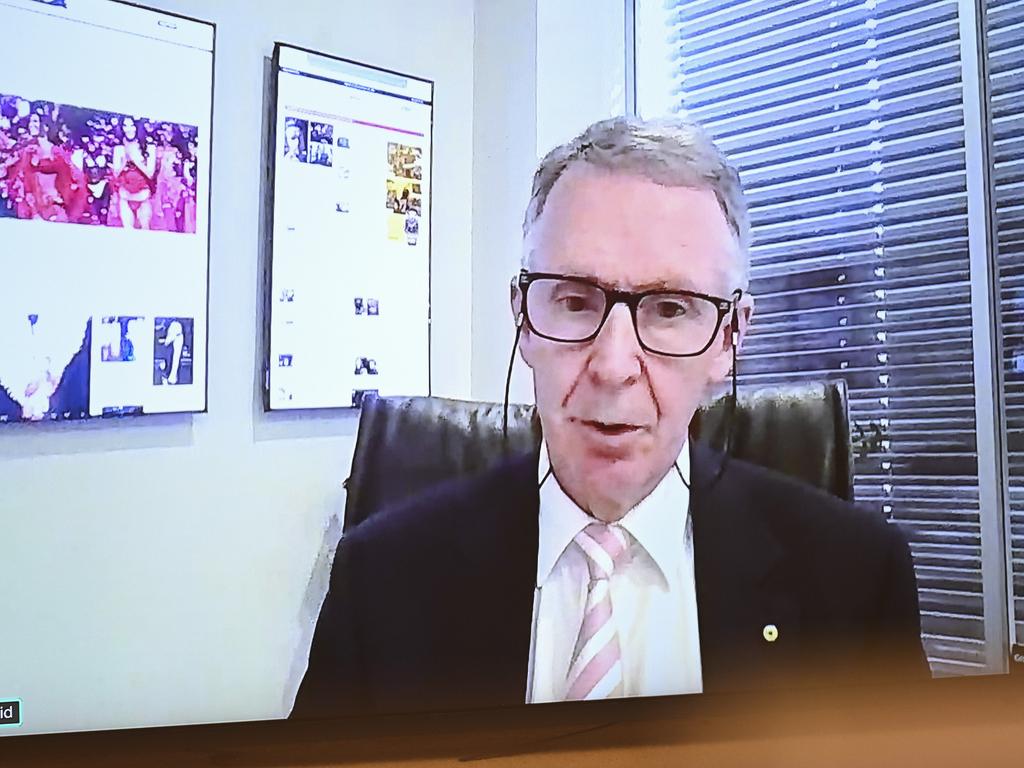
What is striking about Davis’s claim is not just her unbounded confidence in her own opinions, her disdain for those of others and her touching, if surely exaggerated, belief in the efficacy of the grievously underfunded No campaign. It is her refusal to recognise that one of the greatest gifts British colonisation bestowed on Australia was the conviction that it is perfectly legitimate for people’s opinions to differ.
Acknowledging that we must, all too often, agree to disagree may seem obvious. But few achievements have been more hard won, both intellectually and politically.
For centuries, philosophers derided opinion as simply a form of ignorance. Plato dismissed opinion as an illusion that disguised the truth and excused the failure to seriously pursue it. Saint Augustine, in his influential polemic against the Manicheans, declared that “What we understand, we owe to reason, what we believe, to authority, what we have an opinion on, to error”.
And Saint Thomas Aquinas, having defined opinion as “cognition of those things about which we do not have certain judgment”, warned that opinion was inherently corrupted by falsehood and should never be allowed to override faith, which required unconditional assent to the church’s doctrines.
It is consequently unsurprising that Augustine argued that the church could legitimately compel heretics – a term derived from the Greek for “those who exercise choice” – to abandon their beliefs, while Aquinas claimed heretics “deserve not only to be separated from the church by excommunication, but also to be shut off from the world by death”.
If those convictions were eventually overturned, it was partly because the destruction wreaked by the wars of religion showed that uniformity of opinion could only be achieved at horrendous cost.
Thus, during the English Civil War, which exacted a death toll proportionately comparable to that of the First World War, William Walwyn (1600-1680) pleaded with the warring parties to remember that “All times have produced men of several ways, and no man thinks there will be agreement of opinion as long as this world lasts”. Yes, terror could silence dissenters; but “compulsion makes a confused mass of dissembling hypocrites, not a congregation of believers”.
“Why then should we not peaceably bear one with another,” Walwyn asked, “till our sights grow better, and our light increase?”
However, more than despair about the intractable nature of disagreement was at work. Also crucial was the increasingly widespread view that the clash of opinions, far from engendering chaos (as medieval philosophers feared), could protect constitutional liberty and serve as the engine of progress.
Dissenting opinions were, said Sir John Spelman (1594 – 1643), the “watchful eye on the motions of power”, “the barometer that will discover every tendency to change the constitution”.
And as debate raged about the implementation of the 1689 Bill of Rights, John Toland (1670-1722) – the first person to be called a “free thinker” – set the groundwork for the revolutionary notion of a “loyal opposition”. “Every division in the state is not simply pernicious,” he wrote in a widely distributed pamphlet; “sometimes divisions make it better, sometimes worse, but held within due bounds, they always keep it from stagnation”.
That those views acquired growing momentum in the 18th century was no accident. It was in that century that the meaning of “reform” changed radically in all the main European languages.
Until then, “to reform” meant to restore an object to its original, uncorrupted, state: “re-form” invariably looked backwards, to a timeless Platonic ideal, rather than forwards. For example, Nicot’s French dictionary, compiled in 1606, defined a reform as “the return to a more perfect condition”. But by 1740, the Academie Francaise’s dictionary cast reform as a change in policy aimed at achieving a new form, not at reimposing an old one.
The polity was, in other words, amenable to progress; yet proposals for improvement carried uncertainties far beyond those of mere restoration. “The nature of man is intricate,” insisted Edmund Burke (1729-1797), and “the objects of society are of the greatest possible complexity”; those who believed the consequences of reforms could be known with certainty were “artificers grossly ignorant of their trade, or totally negligent of their duty”.
Given that “no lines can be laid down for civil and political wisdom”, differences of opinion about the merits of proposed reforms were not just inevitable; they were an indispensable check on “hazardous adventures”.
Of course, debate had to be civil, for “rage and frenzy will pull down more in half an hour, than prudence, deliberation and foresight can build up in a hundred years”. Any “polished and commercial nation” therefore needed to learn how “to decide every contest without tumult”.
But messy as the battle of ideas might be, suppressing views was more likely to cause tumult, with all of its crippling costs, than to prevent it.
That was the intellectual framework 19th-century Australia inherited from Britain. And it was on that framework that Australia’s achievements were squarely built. Now, however, it lies in tatters.
On the one hand, the government stands passively by as vicious anti-Semitism permeates our universities, with students and academics whose opinions differ from those of Islamist extremists being insulted, intimidated and assaulted. On the other, while doing nothing to curb incitements to violence, it proposes to grant courts and regulators unprecedented powers to curtail the peaceful expression of opinions.
To say that is not to ignore the damage falsehoods can cause. Nor is it to endorse an absurd “free speech absolutism”. But centuries of experience prove that restrictions on expression need to be tightly defined, predictable in their implementation and strictly limited to areas where overwhelming harms would not be corrected by the natural play of opposing voices.
The proposed legislation does not come close to meeting even a single one of those criteria. On the contrary, its own design betrays its fundamental weaknesses.
In effect, were the government as supremely confident as it pretends to be that courts and regulators can exercise the powers it creates with laser-beam accuracy, why would it exclude elections and referendums, which are vastly consequential, from their scope? Why should politicians’ opinions be effectively shielded from the draconian penalties everyone else might have to incur?
The answer is that the government knows just how dangerous those powers are. So does Megan Davis, which is why she is convinced they could have been used to stifle the No campaign. In advocating that frankly, she has, once again, made a devastating case against the proposal she so ardently champions.







According to Megan Davis, the millions of Australians who voted no in the voice referendum were not simply wrong; they were misled by a gigantic conspiracy. The solution, she argues, lies in extending the government’s proposed misinformation and disinformation legislation to cover referendums, thereby vesting in public officials the power to censor the views with which she disagrees.